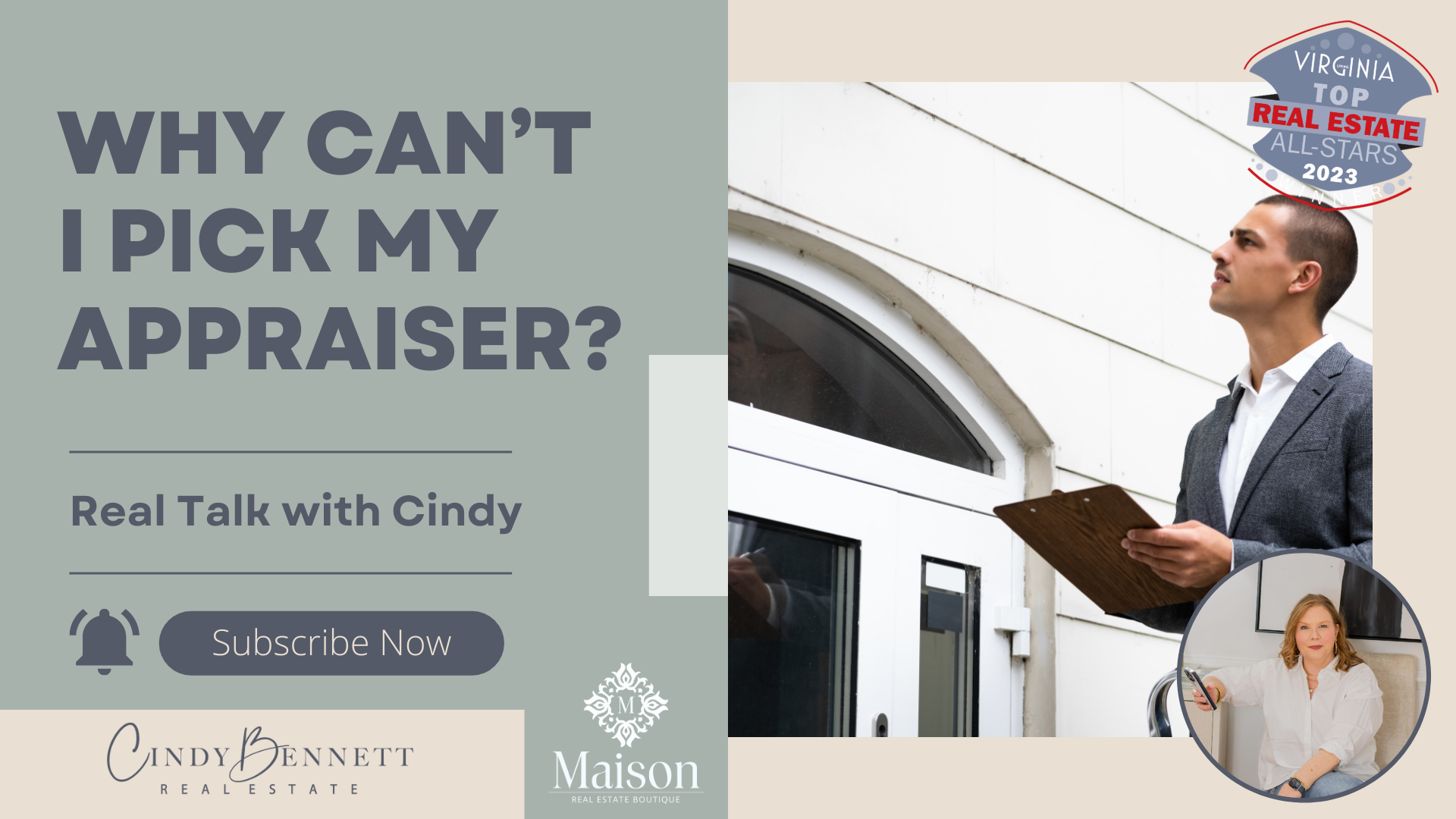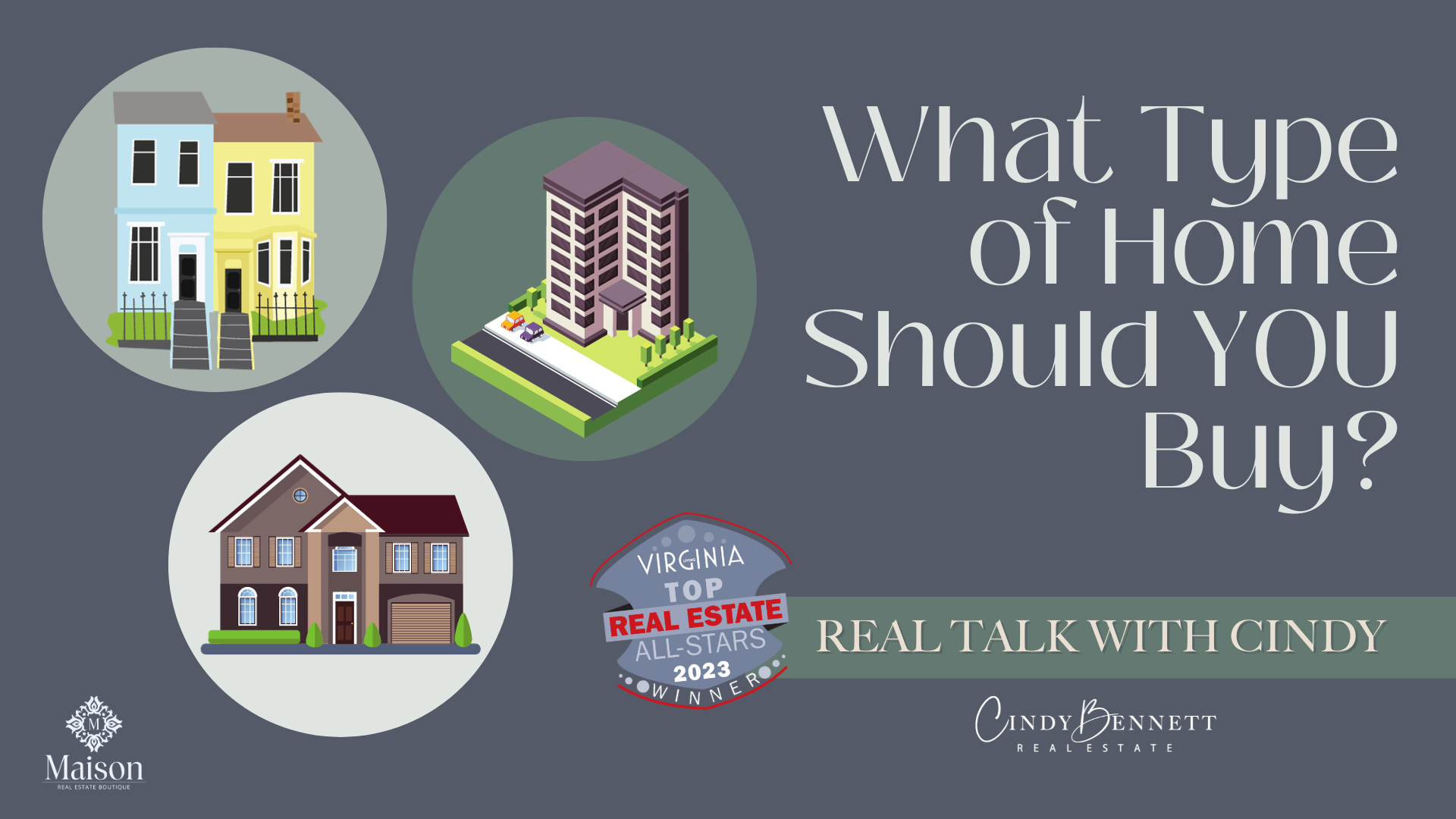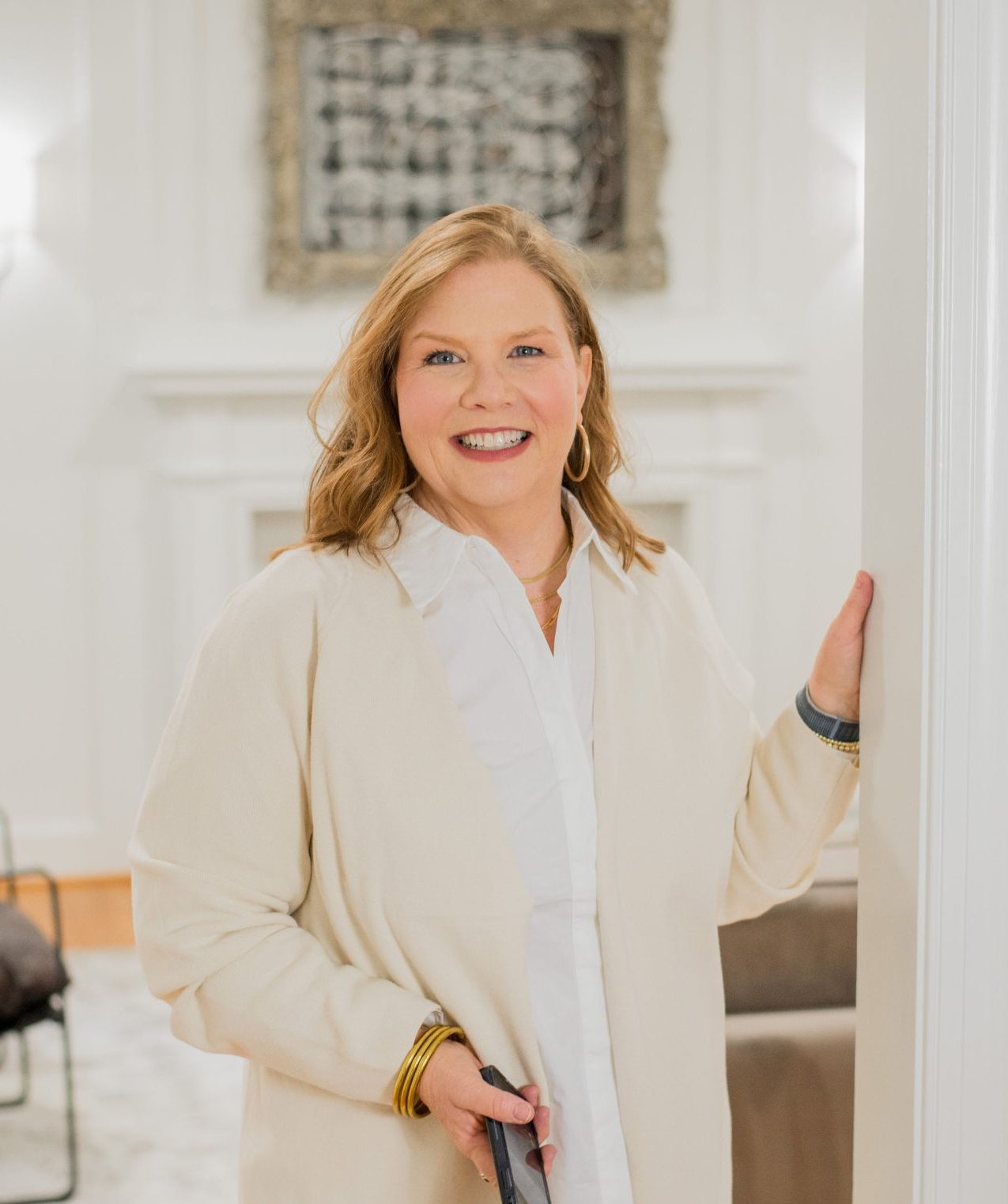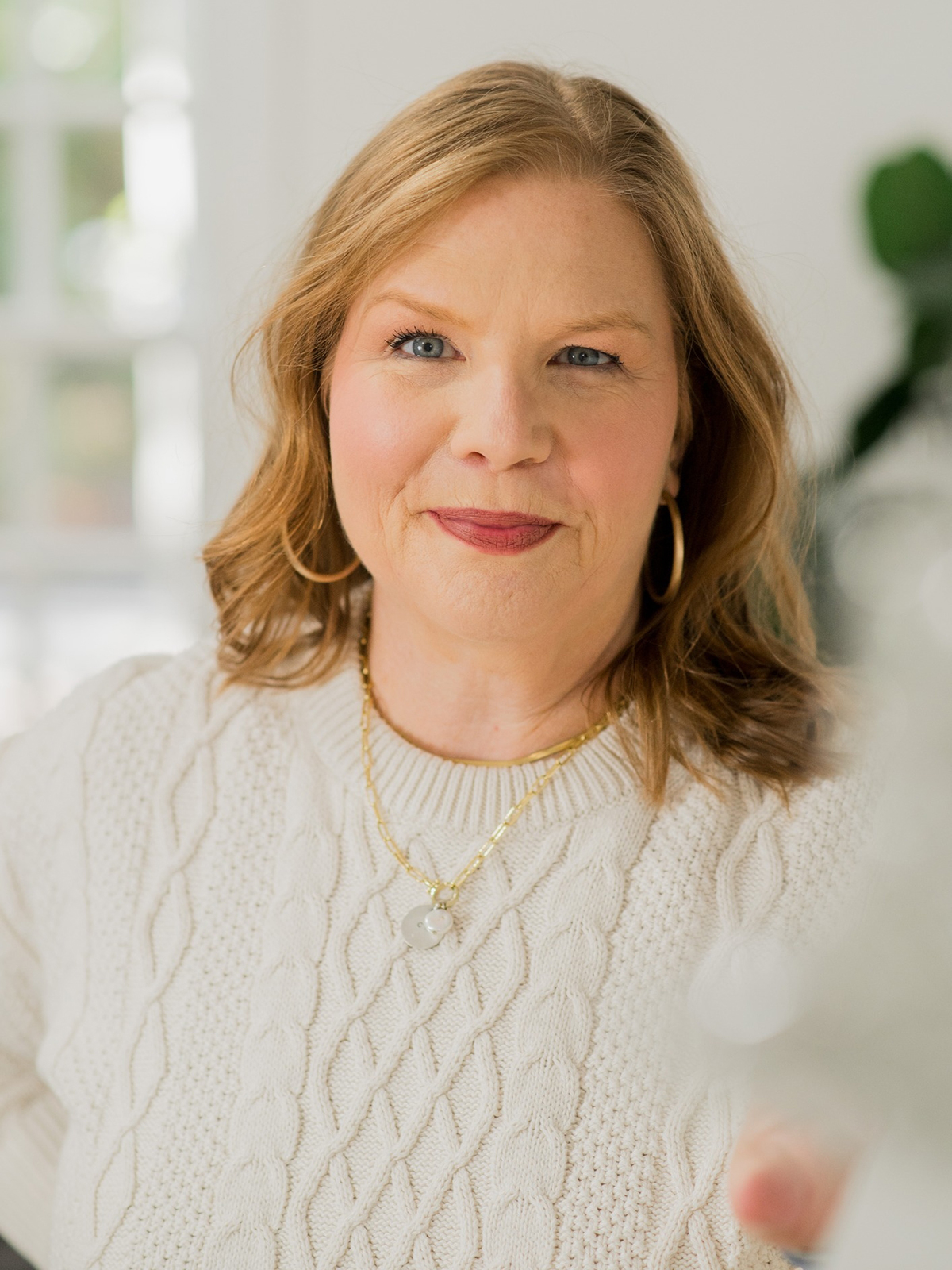HomeBuying
Here you’ll find lots of information on buying a home, whether it’s your first, your tenth, to enjoy or invest in or anything in between. Markets, forms, and everything else are always changing in real estate, so check back here if buying is on your horizon.

So I've seen a couple of things in the past day on social media talking about getting your pre-approval letter, getting pre-qualified with a lender, and getting ready to buy a home. So I wanted to clarify a couple of things. One thing that I saw was in The Wall Street Journal, and it said that you as a buyer, get a real leg up if you have your pre-qualification or your pre-approval ready to go. Here in the Central Virginia, Richmond metro area, sure, we'll call it a leg up. I'm actually not going to call it a leg up and I'm going to call it just like literally where you have to start. If you are working with me, and we're looking at homes, it is not a purposeful use of our time to look at homes if you do not have a pre-qualification, and you're not ready to go, because we are 100% never going to submit an offer on a property that you like, without having a pre-approval with that contract, period, end of story. It's not going to be accepted, it's not going to be taken seriously, it's not going to be considered. So if you really like the house, you like the house enough to write a contract on it, you want to buy a house enough to go look at houses and potentially write a contract on them, get your pre approval. Talk to a lender. Get all of your ducks in a row so that when you do find that house that you love, you can move forward on it. It's not a leg up, it's just what you need to do. Another thing I saw was Barbara Corcoran mentioned that getting all of that pre-approval, getting all of the lender hoops to jump through, getting your income verified, getting your tax returns to the lender, all of that stuff makes you a cash buyer. It actually does not make you a cash buyer. It just makes you a viable buyer. So it's going to be hard to compete with cash with a loan, but it is impossible to compete with anybody if you don't have that pre-approval. So that's my little two cents. If you're seeing people say it's really great to have a pre-approval, it is necessary to have a pre-approval. It's not like an extra step. It is the first step. If you have questions about buying a home, especially if it's your first home and you don't really know where to start, but even if you've bought a whole bunch of homes and you know that you can get qualified or you know you've got somebody that you've worked with and like I'll just give Bob a call and he'll give me a letter, call Bob now, before you start looking. But give me a call if you don't know a lender. I know lots that are fantastic and I'd be happy to put you in touch with them and then we can get started on your home search.
Read more
I may have mentioned before, back in the olden days before the mortgage crisis of 2007/2008, the appraisers were able to be chosen. So, maybe somebody had a specialty in the city of Richmond and that is the appraiser that everybody would call if they had a property in the city of Richmond, especially if it was a property that I don't know might be a little trickier to appraise, and the lender and or the agents were able to request a particular appraiser. That is no longer the case, because the appraisal companies, the appraisers themselves, work for the lender. The lenders have to have an unbiased opinion of the value. Somebody who is not necessarily chosen, they just get handed the name of that appraiser and when that happens, we do get a more unbiased opinion of value. But sometimes it can create a problem if an appraiser is not totally familiar with the nuances of a particular area or neighborhood. In most cases, it's fine because the data is what the data is right? But trickier appraisals can happen. And there are ways to deal with those too. So, follow along for my whole series on appraisals and get a little bit more information about what can happen, what the pitfalls are, why you want an appraisal or maybe you know that you're going to have an issue and you want to know what might happen and how to deal with those problems.
Read more
Let's talk about timing the markets. I think it's a thought that sounds really good in theory, but in practice, it's a little difficult. So obviously, we always want to sell high and buy low. I think that's kind of the idea that we all have when we are dealing with real estate. But think about the fact that that generally does not happen in the exact same market. So timing the market, I think, when you are buying not for investment, but for your primary residence, is almost impossible. Because to time the market well, you have to think about not only when you're going to buy, but when you're going to sell. And while that's easy to do or easy to think about in terms of stocks, or investments, it is a little more difficult when we're buying a home for maybe your family because if October turns into the month to sell, you have to then buy something else or have a place for your family to live. So if you're looking at buying a primary residence, I would suggest looking at that whole big picture and not worrying as much about timing the market because it will probably make more sense over time and less sense to try to target the exact buy date and sell date to make maximum profit when it's your primary residence. So let's save that for investments and for primary residence, we're going to look at it in a slightly different way. If you're thinking about buying or thinking about selling, I'd love to talk to you and help you put together a game plan that's going to give you that big picture to make it all make sense for you both for yourself your life, your lifestyle, your family and your finances.
Read more
It's January, and everybody's making their list of things that they want to accomplish in 2024 and I'm right there with you. But if one of the things that you want to do this year or hope to do this year is buy a home, one of the questions that you probably have is 2024 gonna be better to buy than 2023 was, because it was not that easy last year to buy a house, especially if it was your first home. So here are my predictions for what 2024 is going to look like if you are a homebuyer. We've already seen interest rates drop and that is fantastic because last year they inched up and inched up and inched up to a point where for a lot of people, it was just too expensive to buy a house. But we've already seen them come down and the Federal Reserve has already said that they're going to reduce rates a few times over the course of this year. So I think that we have some good predictions that rates are going to come down to a more attainable, not 3%, but a more attainable spot. So we are unlikely to see those 3%, sub 3%, rates anytime, possibly ever. So if you're waiting for rates to drop back to three, you're going to be waiting a really long time, most likely. And you probably don't want to do that if you're seriously thinking about buying. But as rates come down, it will be more attainable payment wise. But what I want you to keep in mind is if you've been waiting on the sidelines thinking maybe I'm gonna wait to buy a house, remember that right now we're in January, the market is tight with inventory, we still don't have a ton of homes out there and as rates go down, more buyers are going to be entering the market. So if you're thinking you'd like to buy this year, maybe you're thinking I want to buy in spring, you're thinking sometime this year I want to buy I'm going to wait until spring when more homes are on the market. Start looking now because there is less competition out there now in January and February then there will be trust me in March, April, May. So if you're thinking and you're able to buy now with the rates as they are, get out there now, start identifying what you like, what you don't like, and figure out when you can actually move forward because this year is shaping up to definitely have lower rates than last year. Maybe a little bit more inventory though it might be the same and we are gonna see a lot of competition. So get your head in the game. Give me a call. Let's chat. I'll put you in touch with a lender and let's make a game plan to get you in a home in 2024.
Read more
So you're thinking about buying a house, or a condo, or a townhouse, or something? How do you decide on what the right type of home to purchase is based on your budget and your lifestyle? First of all, a lot of people, with lower price ranges particularly, often think a condo or a townhouse is going to solve all their problems, because usually, they're a little less expensive, in most cases than a single-family home. Don't forget that one of the things you have to include, and that your lender is going to look at, in your qualifications number, is the homeowners association, the condo association, whatever they want to call it, that community that you're joining is going to have a fee every month. Sometimes it's going to have special assessments, sometimes those fees can go up. But always, you're going to want to make sure that the fee that is there now is going to work with your budget and the payment that you're going to end up with, and that it's going to cover enough to make you feel comfortable spending that money. The main difference between a townhouse and a condo is the type of ownership. Basically, in a condo, you own what's inside the four walls. Often people think of condos as units in a building like apartments. But, sometimes townhome-looking things can be condos as well. But again, you only own what's inside those four walls. As opposed to having any land or garden yard, whatever that is yours. Obviously with a single-family home, unless you're in a maintenance-free community, all of that exterior maintenance is going to be yours with a townhouse or a condo. Often, that fee is going to cover things like the landscaping and the outdoor areas. Usually, if there's a pool or other amenities, tennis courts, that sort of thing, it's going to cover those as well. But often, it will also cover siding, the roof, the exterior items like doors, and things like that. But those are going to be on a schedule. So there are a lot of moving parts. When you start looking at those associations, what they cover, and how they're covered, you might be thinking, well, I'm not going to pay $250 a month because I can buy a house and then I'll just mow my own grass. But, you can usually pretty much assume that you're going to end up somehow spending at least $250 a month on your single-family home unless you are kicking some maintenance items down the road a little piece. So while the money is important, often the lifestyle is even more important. More maintenance-free options, like townhomes and condos, I think are fantastic for a lock-it-and-leave-it mentality. If you travel a lot for work or you travel a lot for pleasure, or you just don't have time to do yard work or it's just not something you want to do. You don't want to have to worry about getting quotes on a new roof. You want somebody else to deal with that. Or maybe you want the amenities that come with a townhome, a maintenance-free community, or a condo. Those are really lifestyle differences instead of just simple financial ones. Make sure that you read those documents well. You do have a three-day right of rescission, if you can't live with the way that they take care of the property, what you're paying for, or if it looks like their finances are shaky. You want to make sure that you're comfortable not only with the amount of money, but also what you're getting for the amount of money you're paying. A condo or townhome may be for you if you want to have a little bit more of a hands-off approach to maintenance. Sometimes it's worth it and sometimes it's not. If you're thinking about buying I'd love to talk through it with you and help you determine what the best deal for you is for both your budget and your lifestyle to make sure that the home that you buy is one that you love to live in. Give me a call send me a message shoot me an email and let's get started.
Read more
Do you even need a realtor to set up a search for you if you're just starting your search process? There are so many search portals out there that often when people get started on their search, they start on the internet, they start looking at all of those portals. And we'll say to a realtor, I don't need you to set up a search, I already have access to all this other stuff. So if you're thinking about looking for a home, or you're starting to seriously look for a home, and your agent says, hey, I want to set you up with a search portal, there are a few reasons why you might want to do that. First of all, the timeliness with which that information gets syndicated out to all those other sites, sometimes it can take two days. And in two days, in this market, you may have missed the boat on that home that you could have fallen in love with. Secondly, it's a great little reminder for your agent. If I am looking for five different buyers and I have searches set up, it's going to send me a copy of that too. So I am also able to get that little tap on the shoulder from the multiple listing service, letting me know hey, there is a house that you know, Bob and Mary Smith might love. It's also a great way to communicate with your agent because you can put notes on there. So as we're sometimes learning what you like and what you don't like, if you're putting notes on there that say things like I love this location, but I hate this kitchen, then that helps me if I'm your agent learn a little bit better about what you like. So always don't get too specific in those things, but it really does shorten that learning curve a little bit and help make your home search a little bit more efficient. So if your agent says, "Let me set you up with a search portal", don't just wave it off. Yes, it's one more email. But hopefully it won't take very long before you'll be able to find the home that you love. It'll be easier, shorten that learning curve, and make sure that you're knowing exactly what comes on the market exactly when it comes on the market and not two days later. If you have any questions about the home buying process, the home searching process, I'd love to talk to you more, give me a call, send me an email or shoot me a message and let's chat.
Read more
Every buyer's journey is different, but I want to share this one with everyone to show what a difference small changes make. Ready to start your buyer's journey? Reach out to me on Instagram @ CindyBennettRealEstate or via my website cindybennett.net.
Read more
You've got to be kidding, we're still having multiple offer situations. Fortunately, or unfortunately, yes, we are still seeing multiple offer situations all over the place every week, every day, in lots of different price ranges with lots of different homes. So if you're thinking of buying, I wanted to break down just a little bit of what you can. I don't know that I want to say look forward to but maybe expect if you're looking at a home and likely to run into a multiple offer situation. So working with your buyer's agent, you're going to look at all of the homes that have sold in the area that are kind of comparable and get a feel for what homes are selling for. Now, if a home sold a year ago, it's not really going to be a great comp. So don't hang your hat on that and get hung up on what somebody paid six months or a year ago. I can almost guarantee you, the house that you're going to buy is going to end up costing more than the same house sold for six months ago or a year ago. That's just what the market is doing right now. So make sure that you're realistic in what things are costing, what homes are selling for, and what you're willing to pay. If the house is turnkey and doesn't need anything that has a value beyond just the dollar amount of those individual fixes. So if that's what you're looking for a turnkey situation, give that the credit that it's due, and go a little bit higher, knowing that you're going to be able to move in and put your feet up. Rather than have to do a whole bunch of projects in the first month you're living there, the more information you can find out the better. So if you know how many offers, if your agent can find out how many offer their offers, there is anything that you can find out is going to help you. Keep in mind that it's not always about price, you can add a lot of little details to your offer that are going to make it more appealing that might be the closing date, it might be inspection terms, it might be a rent back that the seller wants or needs. Or it may be something totally random, like, you know, they need to have an extra three weeks because they have to clean out the garage. The more things that you give them like that the more appealing your offer is going to be. But often it really does come down to price. So make sure that you are looking at current comparables with your agent and coming up with a price that is good today. If you're thinking about buying, and you're curious about multiple offer situations, how they work, how to navigate them how to get the best deal for you, while also winning the house. Give me a call. I'd love to help we'll walk you through it. And my goal is always to walk you through it a little bit before we get to the day that you find the house that you love. So they have a little bit more information to navigate those waters without just jumping in cold and having to swim. Give me a call. I'd love to talk to you.
Read more
Have you always thought about buying investment property, but you're not sure where to start, how to start, or what you need to know to really get going? And who would do that in this market anyway? Let's unpack some of the numbers and historical numbers and kind of take a look at why now might actually not be a bad time to get into real estate investing. If you look at the average appreciation over the last couple of years, and these are big national numbers, so they're gonna be dependent upon where you are, and the neighborhood and the area and the county and the city and all that good stuff. But the overall numbers are 20% appreciation on home values over the last two years. Those are pretty wild and crazy numbers, because where are you getting a 20% return on an investment that is relatively safe, like it's not likely to drop by, you know, 100 points tomorrow. Now, those numbers are unlikely to continue. So while 20% is great, that also implies that prices are going to go up by that much, right? Nobody really wants that. But over the last 10 years, we've seen increases in value of about 10%, prior to the last couple of years. So that is still a pretty solid return on your investment over time. When we look at the average return on standard traditional investment stocks and 401k's and things like that, as being between 5% and 8%, take into account the fact that income has only increased year over year by four to 5%. And hedging against inflation. Figuring out how to make your money make more money for you, real estate investing is a really solid way to go. You could check my other video that has some more information about different business models on real estate investing, whether you are looking to have immediate cash flow, whether you just want to balance it and bank on the appreciation, house hack, or any other type of real estate investing. But overall, the appreciation and the ROI that you get from real estate is a really solid investment and something that is a great way to pay for your kids college. If you buy a house when they're young, sell it when they go to school often you can pay for their whole college experience just by the appreciation alone. So if you've ever thought about investing in real estate, it is not a bad time even though rates are a little high. And your return on your investment can be really fantastic depending on what you buy. So if you want more information and you're curious about getting started, you want to see what it takes. Give me a call or send me an email let's schedule a time to chat and discuss your long-term plans, and short-term plans, and see if jumping into the real estate market as an investment is the right time for you.
Read more
So you're thinking about buying some investment property, what are some things you might want to consider? First of all, you want to keep in mind that the parameters that you use for buying investment property are seldom the same as what you would use if you're buying a house that you're going to live in or even a vacation home. There are a few different business models that you can use. And we're talking mainly about residential investment property. So you can do short-term rental, you can do long-term rentals, you can do mid-term rentals. But also, look at how you want to build that portfolio or even just get started if this is your first one. So one of the most ideal business models is something where you're going to have immediate cash flow, but particularly in this market, that is often kind of hard to come by to find something where your mortgage is going to be less than the amount that you're charging for rent. So that is kind of a delicate balance, and something that requires some calculation, and sharpening the pencil to get to the numbers where they need to be. The second business model is where it covers itself pays for itself all along to a degree at least, but appreciates over time. So you're really banking on that appreciation over time. So that would be a scenario where your mortgage is $2,000 a month, and you can also get $2,000 a month in rent. So you do not have to necessarily lay money out every month except for repairs or upgrades and things like that. But it's not making money every month. Nothing is going back in your pocket until you go to sell or it appreciates over time. The third and one you see a lot of investment people and motivational people talk about is "house hacking". And what does that mean? If you don't know house hacking is where you buy a multifamily property. So a duplex or a triplex for a quad and you live in one unit and rent out the rest. This is a fantastic scenario, especially if you're a first-time buyer, if you are not tied up on your first home, particularly your dream home. Or if you just want to focus more on building wealth and building that investment portfolio. So often, it'll pay for you to live there. If your mortgage is $3,000 a month on a duplex, for example, and you can charge $2,000 a month, then you're only paying $1,000 to live in the other unit. You can do this every two years really, and keep swapping up just building your portfolio rather than renting that unit that you've moved out of doing it again and doing it again. So often you'll hear people talk about House hacking. That's what that is. So if you want to get started in real estate investing, one of the best things is, obviously, to give me a call, call an agent in your market who is familiar with investors and working with investors and real estate investing so that you can sort of get the lay of the land and figure out what business model works best for you for your finances, for your family for your future, how you want to do it, because then you can really focus on the properties that are going to work to fit into that business model. But if you're curious about investing, I do have a lot of experience working with investors. I have done this myself. So I know a lot about the process of getting there and going through and some of the pitfalls that you might want to avoid. So give me a call send me a message shoot me an email and let's talk.
Read more


